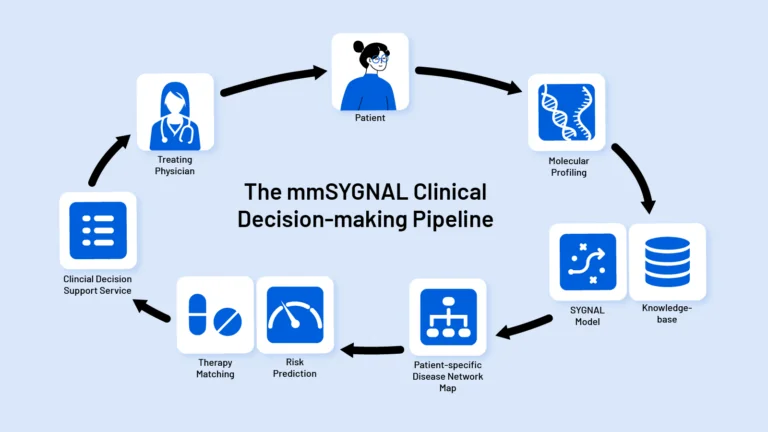
New Model Transforms Multiple Myeloma Risk Prediction
A team of researchers has developed a powerful new tool that could transform how doctors treat multiple myeloma, a complex and often unpredictable blood cancer.

Cancer is complex and requires a sophisticated systems approach to understand and treat it. ISB researchers are pursuing several complex and cross-disciplinary means to better create more personalized therapeutics and simulate which treatments will be most effective.
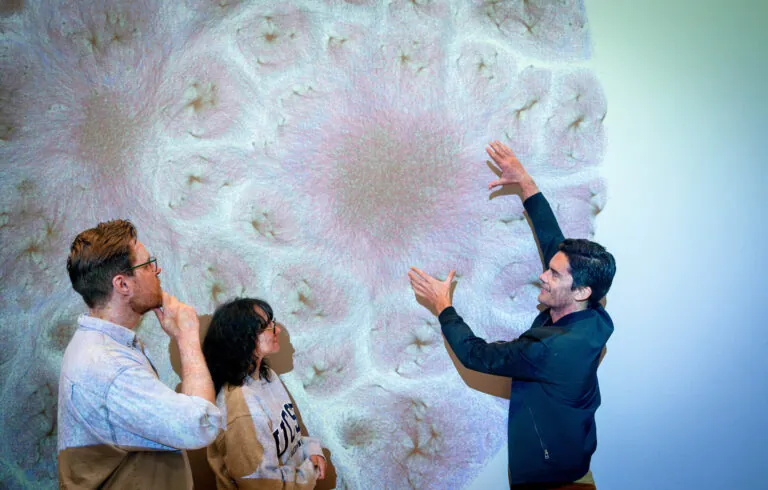
Each of us has a microbiome — trillions of microorganisms that reside in and on our bodies. ISB researchers study the microbiome’s role in human health and translate this knowledge into approaches designed to promote better health for every individual.
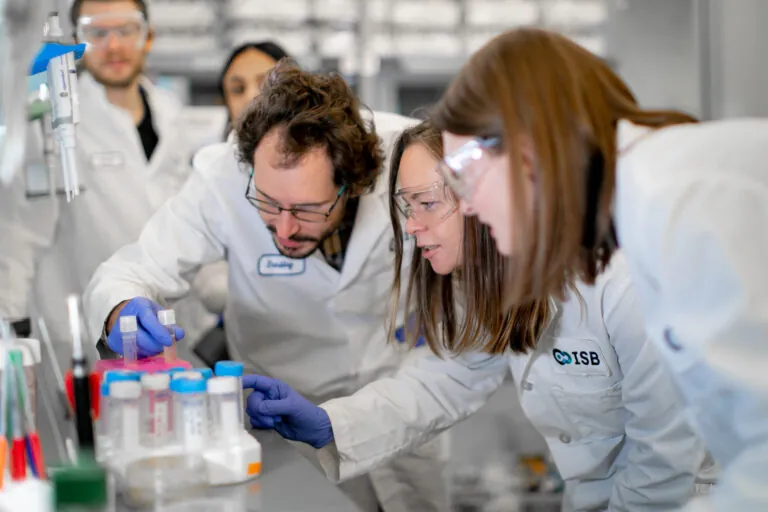
Our infectious disease research addresses a wide range of global health initiatives. We are exploring new approaches that focus on cutting-edge treatments and preventive measures to fight infectious diseases.
Read the latest news of our transformational research, devoted scientists and educators, recent and upcoming events, and much more.

A team of researchers has developed a powerful new tool that could transform how doctors treat multiple myeloma, a complex and often unpredictable blood cancer.

In the March installment of the 2024-25 academic year roundup, we highlight how ISB educators have been active in the local community, and more.

ISB Professor Sui Huang challenges the prevailing view of cancer as purely genetic in a new essay published in PLOS Biology. Huang and colleagues argue that many cancers lack identifiable driver mutations, suggesting non-genetic factors and disrupted gene regulatory networks may play crucial roles in cancer development.

A purple ribbon, the color for gynecologic cancers, composed with diverse faces illustrated by Stacey Knipe.
The Women’s Health Consortium, led by ISB President Dr. Jim Heath, is taking a collaborative approach to engineered T cell immunotherapy to benefit all women with advanced HPV+ cancers. Your support will help us bring innovative therapies to patients in need.
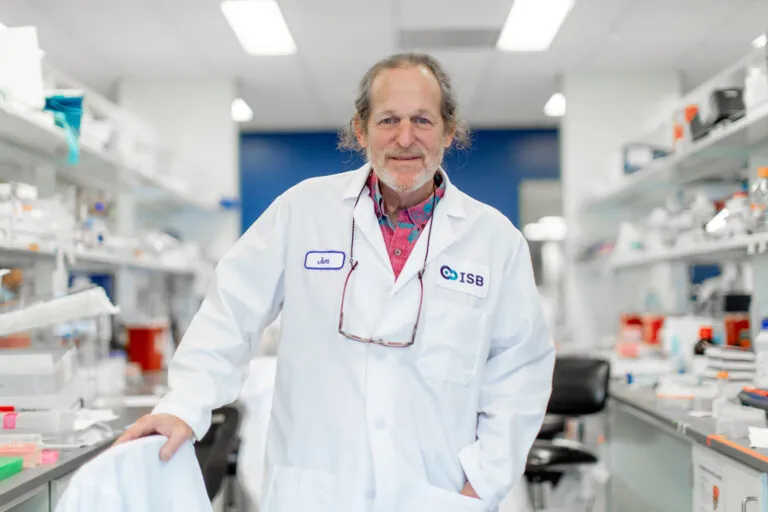
President and Professor Jim Heath is dedicated to advancing precision medicine from benchtop to bedside, particularly in oncology. His research addresses fundamental scientific bottlenecks that can unlock solutions to broader challenges.
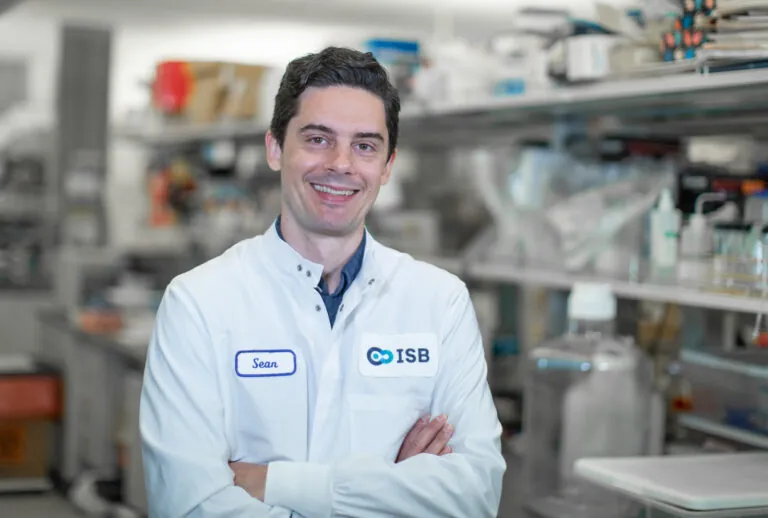
Associate Professor Sean Gibbons develops experimental and computational approaches to dissect and engineer the functional outputs of the human gut microbiome to advance personalized medicine.
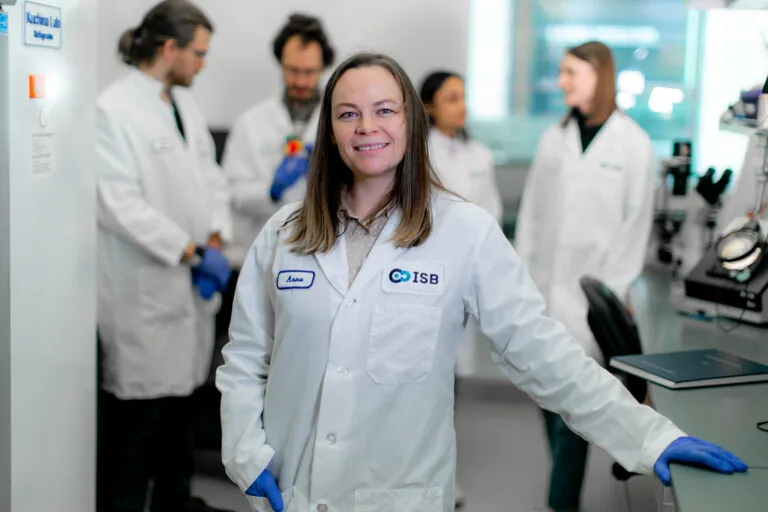
Assistant Professor Anna Kuchina studies bacteria at the single-cell level, using advanced technologies to understand how bacteria behave in complex settings such as biofilms living in the human body.
The Institute for Systems Biology (ISB) is a nonprofit scientific research organization located in Seattle. We believe that science has the power to transform health. You have an opportunity to play an essential role in the future of human health. When you get involved, you enable our researchers to tackle some of the biggest challenges of our time. Together we can build a better, brighter, healthier future.